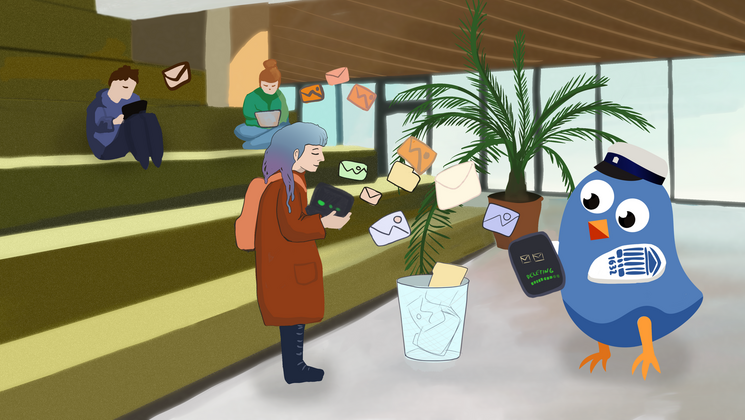A regional green transition requires a supportive environment and in-depth know-how

Central and Eastern European municipalities are currently falling behind Western European regions, where the development of sustainable energy and climate action plans is undeniably in a better shape. Experts from international CEESEU project, led by University of Tartu, state that better knowledge and funding opportunities, as well as more support from policymakers, could change that situation.
During the three years of the CEESEU project ("Central and Eastern European Sustainable Energy Union"), funded by the EU and ended in autumn 2023, Johan Skytte Institute of Political Studies at the University of Tartu, in cooperation with the Tartu Regional Energy Agency and international partners, helped increase the capacity of Central and Eastern European municipalities and policymakers to develop sustainable energy and climate action plans.
According to Elis Vollmer, the project manager at the University of Tartu, this was a great opportunity to demonstrate the green transition process of local governments, starting from the preparation of energy and climate strategies to securing the necessary funding and evaluating the results. Over the course of three years, successful examples were created in 57 municipalities in the Central and Eastern European region (in Estonia we focused on Pärnu and Võru cities). The project planned, funded, and implemented activities that help transition to sustainable energy and adapt to climate change.
The complexity of securing funding imposes the greatest limitations
Vollmer states that for a successful green transition, it's crucial that municipalities and policymakers know how to develop action plans that increase energy efficiency, save energy, reduce CO2 emissions, and better adapt to climate change. "Currently, Central and Eastern European municipalities are significantly behind Western Europe in drafting these plans, due to both a lack of awareness and interest in strategic planning. They often also lack administrative capacity and access to resources, or they do not sufficiently involve necessary target groups," Vollmer highlights, discussing the challenges that the project aimed to address.
The biggest challenge in developing plans, according to Vollmer, is funding: its complexity or absence. "Although various funding sources have been established to support local government initiatives, their accessibility is somewhat difficult. Generally, the application process is complicated, especially for smaller municipalities. Criteria can also be too strict and competition for funding quite fierce," Vollmer admits. Additionally, she notes a lack of knowledge and skills for obtaining grants, and often a failure to involve the private sector or find ways to simplify conditions in collaboration with policymakers.
As a solution, experts during the project offered recommendations on how municipalities can secure and allocate funds for strategic support of the green transition, how to expand skills for creating competitive projects and securing their funding, and how to propose procedural simplifications of support measures to policymakers.
Greater knowledge and skills required for green transition execution
A key factor in the success of the regional green transition is also the competence of those implementing it to deal with the transition itself and all that comes with it, Vollmer describes. "It all starts with setting up the decision-making chain and management structure, having enough administrative staff, and the necessary contact between different parties/departments for drafting and implementing the plan," she notes, emphasizing that while relevant knowledge is very important, it does not mean that everyone must become an energy and climate expert. "Rather, it's important to be able to gather those within the municipal network who already have some of the necessary skills, whether that be an individual with the required technical skill or a partner, such as an energy community initiative or even a network of neighbouring municipalities."
The need for better collaboration at both, grassroots and decision-making levels
Vollmer also points out the need for municipalities to have cooperation and engagement skills with different target groups: at the citizen level, where the regional green transition should bring the most benefit, and at the multi-level policy maker level, to simplify complex measures and their implementation options. "Practical solutions include forming working groups that involve different parties, and more skilful information campaigns about the activities to take into account the ideas of all parties and create as user-centric result as possible," Vollmer shares lessons learned from the CEESEU project based on experiences from seven participating countries.
Experts from the project also encourage both European Union and Central and Eastern European policymakers to support local governments in their joint efforts on the green transition journey. "Although a municipality's energy and climate action plan might seem like a local endeavour, the exchange of experiences and ideas between decision-making levels can be very valuable to the region. Therefore, we encourage decision-makers at both the national and European levels to find ways to keep in touch with regional municipalities that are trying to implement the green transition on a practical level every day," Vollmer shares the experts' recommendations.
Similarly to the value that regionally applied methods and insights into concerns offer to policymakers, it is important for municipalities to receive feedback and information from decision-makers - on the creation of cooperation networks as well as opportunities for exchanging expertise at both, the local and international levels, or in technical aspects. "By identifying the needs of municipalities, it's possible to get a bigger picture of the tools and data needed for planning or implementation across sectors, which then can create more value for the green transition across whole Central and Eastern Europe," Vollmer notes.
Find out more about the CEESEU project and its results: https://ceesen.org/en/about-ceeseu/
The CEESEU project, which ran from November 1, 2020, to October 31, 2023, involved experts and organizations from ten countries. The project was funded by the European Commission under the "Horizon 2020" programme with the grant agreement no. 892270, with a budget 1.5 million euros.






